-
Market Introduction
-
Definition
-
Scope of the Study
- Assumptions
- Limitations
-
2.2.1
-
Research Objective
-
Chapter 3.
-
Research Methodology
-
Overview
-
Primary Research
-
Secondary
-
Research
-
Market Size Estimation
-
Chapter 4. Market Dynamics
-
4.1
-
Drivers
-
Restraints
-
Opportunities
-
Chapter 5. Market Factor
-
Analysis
-
Porter’s Five Forces Analysis
- Bargaining Power
- Bargaining Power of Buyers
- Threat of New Entrants
- Threat of Substitutes
- Intensity of Rivalry
-
of Suppliers
-
Value
- R&D & Designing
- Manufacturing
- Post-Sales Review
-
Chain Analysis
-
5.2.3
-
Distribution & Sales
-
Chapter 6. Global Immunosuppressive
-
Drugs Market, by Drug Type
-
Overview
-
Calcineurin Inhibitors
-
Market Estimates & Forecast, by Region, 2020-2027
-
Market Estimates &
-
Forecast, by Country, 2020-2027
-
Corticosteroids
-
Market Estimates &
-
Forecast, by Region, 2020-2027
-
Market Estimates & Forecast, by Country,
-
Antiproliferative Agents
-
Market Estimates & Forecast,
-
by Region, 2020-2027
-
Market Estimates & Forecast, by Country, 2020-2027
-
mTOR Inhibitors
-
Market Estimates & Forecast, by Region, 2020-2027
-
Market Estimates & Forecast, by Country, 2020-2027
-
IMDH Inhibitors
-
Market Estimates & Forecast, by Region, 2020-2027
-
Market Estimates &
-
Forecast, by Country, 2020-2027
-
Others
-
Market Estimates & Forecast,
-
by Region, 2020-2027
-
Market Estimates & Forecast, by Country, 2020-2027
-
Chapter 7. Global Immunosuppressive Drugs Market, by Route of Administration
-
Overview
-
Intravenous
-
Market Estimates & Forecast, by Region,
-
Market Estimates & Forecast, by Country, 2020-2027
-
Oral
-
Market Estimates & Forecast, by Region, 2020-2027
-
Market Estimates &
-
Forecast, by Country, 2020-2027
-
Others
-
Market Estimates & Forecast,
-
by Region, 2020-2027
-
Market Estimates & Forecast, by Country, 2020-2027
-
Chapter 8. Global Immunosuppressive Drugs Market, by Application
-
Overview
-
Autoimmune Disease
-
Market Estimates & Forecast, by Region, 2020-2027
-
Market Estimates & Forecast, by Country, 2020-2027
-
Organ Transplant
-
Market Estimates & Forecast, by Region, 2020-2027
-
Market Estimates &
-
Forecast, by Country, 2020-2027
-
Market Estimates
-
& Forecast, by Region, 2020-2027
-
Kidney Transplant
-
Market Estimates & Forecast, by Country,
-
Liver Transplant
-
Market Estimates & Forecast, by Region,
-
Market Estimates & Forecast, by Country, 2020-2027
-
8.3.3
-
Heart Transplant
-
Market Estimates & Forecast, by Region, 2020-2027
-
Market
-
Estimates & Forecast, by Country, 2020-2027
-
Market Estimates
-
& Forecast, by Region, 2020-2027
-
Others
-
Market Estimates & Forecast, by Country,
-
Others
-
Market Estimates & Forecast, by Region, 2020-2027
-
Market Estimates & Forecast, by Country, 2020-2027
-
Chapter 9. Global
-
Immunosuppressive Drugs Market, by End User
-
Overview
-
Hospitals
-
& Clinics
-
Market Estimates & Forecast, by Region, 2020-2027
-
Market
-
Estimates & Forecast, by Country, 2020-2027
-
Organ Transplant Centers
-
Market Estimates & Forecast, by Region, 2020-2027
-
Market Estimates &
-
Forecast, by Country, 2020-2027
-
Others
-
Market Estimates & Forecast,
-
by Region, 2020-2027
-
Market Estimates & Forecast, by Country, 2020-2027
-
Chapter 10. Global Immunosuppressive Drugs Market, by Region
-
Overview
-
Americas
- North America
- Latin America
-
Europe
- Western Europe
- Eastern Europe
-
10.3.1.1
-
Germany
-
10.3.1.5
-
UK
-
Asia-Pacific
- Japan
- China
- India
- Australia
- Rest of Asia-Pacific
-
10.4.5
-
South Korea
-
Middle East & Africa
- Middle East
- Africa
-
Chapter 11. Company Landscape
-
11.1
-
Overview
-
Competitive Analysis
-
Chapter 12. Company Profiles
-
Accord Healthcare
- Company Overview
- Products/Services
- Financial Overview
- Key Developments
- Key Strategies
-
Offered
-
12.1.5
-
SWOT Analysis
-
Astella Pharma
- Company
- Products/Services Offered
- Financial Overview
- Key Developments
- SWOT Analysis
- Key Strategies
-
Overview
-
Bristol-Myers Squibb Company
- Company Overview
- Products/Services
- Financial Overview
- Key Development
- Key Strategies
-
Offered
-
12.3.5
-
SWOT Analysis
-
Genzyme Co.
- Company
- Products/Services Offered
- Financial Overview
- Key Development
- SWOT Analysis
- Key Strategies
-
Overview
-
F. Hoffmann-La Roche AG
- Company Overview
- Products/Services
- Financial overview
- Key Developments
- Key Strategies
-
Offered
-
12.5.5
-
SWOT Analysis
-
GlaxoSmithKline PLC
- Products/Services Offered
- Financial Overview
- Key Developments
- SWOT Analysis
- Key Strategies
-
12.6.1
-
Company Overview
-
Glenmark Pharmaceuticals, Inc.
- Overview
- Products/Services
- Financial Overview
- Key Developments
- Key Strategies
-
Offered
-
12.7.5
-
SWOT Analysis
-
Mylan Laboratories Inc.
- Products/Services Offered
- Financial Overview
- Key Developments
- SWOT Analysis
- Key Strategies
-
12.8.1
-
Overview
-
Pfizer Inc.
- Overview
- Products/Services Offered
- Financial Overview
- Key Developments
- SWOT Analysis
- Key Strategies
-
Novartis AG
- Overview
- Financial Overview
- Key Developments
- SWOT Analysis
- Key Strategies
-
12.10.2
-
Products/Services Offered
-
Actavis, Inc.
- Overview
- Products/Services Offered
- Financial
- Key Developments
- SWOT Analysis
-
Overview
-
12.11.6
-
Key Strategies
-
Zydus Cadila
- Overview
- Products/Services
- Financial Overview
- Key Developments
- Key Strategies
-
Offered
-
12.12.5
-
SWOT Analysis
-
Chapter 13 Appendix
-
References
-
Related Reports
-
-
LIST OF TABLES
-
Global
-
Immunosuppressive Drugs Market Synopsis, 2020-2027
-
Global Immunosuppressive
-
Drugs Market Estimates & Forecast, 2020-2027 (USD Million)
-
Global
-
Immunosuppressive Drugs Market, by Drug Type, 2020-2027 (USD Million)
-
Table
-
Global Immunosuppressive Drugs Market, by Route of Administration, 2020-2027 (USD
-
Million)
-
Global Immunosuppressive Drugs Market, by Application, 2020-2027
-
(USD Million)
-
Global Immunosuppressive Drugs Market, by End User, 2020-2027
-
(USD Million)
-
Global Immunosuppressive Drugs Market, by Region, 2020-2027
-
(USD Million)
-
Americas: Immunosuppressive Drugs Market, by Region,
-
Americas: Immunosuppressive Drugs Market, by Drug Type,
-
Americas: Immunosuppressive Drugs Market,
-
by Route of Administration, 2020-2027 (USD Million)
-
Americas: Immunosuppressive
-
Drugs Market, by Application, 2020-2027 (USD Million)
-
Americas: Immunosuppressive
-
Drugs Market, by End User, 2020-2027 (USD Million)
-
North America:
-
Immunosuppressive Drugs Market, by Country, 2020-2027 (USD Million)
-
Table
-
North America: Immunosuppressive Drugs Market, by Drug Type, 2020-2027 (USD Million)
-
North America: Immunosuppressive Drugs Market, by Route of Administration,
-
North America: Immunosuppressive Drugs Market,
-
by Application, 2020-2027 (USD Million)
-
North America: Immunosuppressive
-
Drugs Market, by End User, 2020-2027 (USD Million)
-
Latin America:
-
Immunosuppressive Drugs Market, by Drug Class, 2020-2027 (USD Million)
-
Table
-
Latin America: Immunosuppressive Drugs Market, by Route of Administration, 2020-2027
-
(USD Million)
-
Latin America: Immunosuppressive Drugs Market, by Application,
-
Latin America: Immunosuppressive Drugs Market,
-
by End User, 2020-2027 (USD Million)
-
Europe: Immunosuppressive Drugs
-
Market, by Region, 2020-2027 (USD Million)
-
Europe: Immunosuppressive
-
Drugs Market, by Drug Type, 2020-2027 (USD Million)
-
Europe: Immunosuppressive
-
Drugs Market, by Route of Administration, 2020-2027 (USD Million)
-
Table 25
-
Europe: Immunosuppressive Drugs Market, by Application, 2020-2027 (USD Million)
-
Europe: Immunosuppressive Drugs Market, by End User, 2020-2027 (USD Million)
-
Western Europe: Immunosuppressive Drugs Market, by Country, 2020-2027
-
(USD Million)
-
Western Europe: Immunosuppressive Drugs Market, by Drug
-
Type, 2020-2027 (USD Million)
-
Western Europe: Immunosuppressive Drugs
-
Market, by Route of Administration, 2020-2027 (USD Million)
-
Western
-
Europe: Immunosuppressive Drugs Market, by Application, 2020-2027 (USD Million)
-
Western Europe: Immunosuppressive Drugs Market, by End User, 2020-2027
-
(USD Million)
-
Eastern Europe: Immunosuppressive Drugs Market, by Drug
-
Type, 2020-2027 (USD Million)
-
Eastern Europe: Immunosuppressive Drugs
-
Market, by Route of Administration, 2020-2027 (USD Million)
-
Eastern
-
Europe: Immunosuppressive Drugs Market, by Application, 2020-2027 (USD Million)
-
Eastern Europe: Immunosuppressive Drugs Market, by End User, 2020-2027
-
(USD Million)
-
Asia-Pacific: Immunosuppressive Drugs Market, by Country,
-
Asia-Pacific: Immunosuppressive Drugs Market,
-
by Drug Type, 2020-2027 (USD Million)
-
Asia-Pacific: Immunosuppressive
-
Drugs Market, by Route of Administration, 2020-2027 (USD Million)
-
Table 39
-
Asia-Pacific: Immunosuppressive Drugs Market, by Application, 2020-2027 (USD Million)
-
Asia-Pacific: Immunosuppressive Drugs Market, by End User, 2020-2027
-
(USD Million)
-
Middle East & Africa: Immunosuppressive Drugs Market,
-
by Region, 2020-2027 (USD Million)
-
Middle East & Africa: Immunosuppressive
-
Drugs Market, by Drug Type, 2020-2027 (USD Million)
-
Middle East &
-
Africa: Immunosuppressive Drugs Market, by Route of Administration, 2020-2027 (USD
-
Million)
-
Middle East & Africa: Immunosuppressive Drugs Market,
-
by Application, 2020-2027 (USD Million)
-
Middle East & Africa:
-
Immunosuppressive Drugs Market, by End User, 2020-2027 (USD Million)
-
LIST OF FIGURES
-
Research Process
-
Market Structure
-
for the Global Immunosuppressive Drugs Market
-
Market Dynamics for
-
the Global Immunosuppressive Drugs Market
-
Global Immunosuppressive
-
Drugs Market Share, by Drug Type, 2020 (%)
-
Global Immunosuppressive
-
Drugs Market Size, by Drug Type, 2020 (USD Million)
-
Global Immunosuppressive
-
Drugs Market Share, by Route of Administration, 2020 (%)
-
Global Immunosuppressive
-
Drugs Market Size, by Route of Administration, 2020 (USD Million)
-
Figure 8
-
Global Immunosuppressive Drugs Market Share, by Application, 2020 (%)
-
Figure
-
Global Immunosuppressive Drugs Market Size, by Application, 2020 (USD Million)
-
Global Immunosuppressive Drugs Market Share, by End User, 2020 (%)
-
Global Immunosuppressive Drugs Market Size, by End User, 2020 (USD Million)
-
Global Immunosuppressive Drugs Market Share, by Region, 2020 (%)
-
Americas: Immunosuppressive Drugs Market Share, by Region, 2020 (%)
-
North America: Immunosuppressive Drugs Market Share, by Country, 2020
-
(%)
-
Europe: Immunosuppressive Drugs Market Share, by Region, 2020
-
(%)
-
Western Europe: Immunosuppressive Drugs Market Share, by Country,
-
Asia-Pacific: Immunosuppressive Drugs Market Share, by Country,
-
Middle East & Africa: Immunosuppressive Drugs Market
-
Share, by Region, 2020 (%)
-
Global Immunosuppressive Drugs Market:
-
Company Share Analysis, 2020 (%)
-
Accord Healthcare: Key Financials
-
Accord Healthcare: Segmental Revenue
-
Accord Healthcare:
-
Regional Revenue
-
Astella Pharma: Key Financials
-
Astella
-
Pharma: Segmental Revenue
-
Astella Pharma: Regional Revenue
-
Figure
-
Bristol-Myers Squibb Company: Key Financials
-
Bristol-Myers Squibb
-
Company: Segmental Revenue
-
Bristol-Myers Squibb Company: Regional
-
Revenue
-
Genzyme Co.: Key Financials
-
Genzyme Co.: Segmental
-
Revenue
-
Genzyme Co.: Regional Revenue
-
F. Hoffmann-La
-
Roche AG: Key Financials
-
F. Hoffmann-La Roche AG: Segmental Revenue
-
F. Hoffmann-La Roche AG: Regional Revenue
-
GlaxoSmithKline
-
PLC: Key Financials
-
GlaxoSmithKline PLC: Segmental Revenue
-
Figure
-
GlaxoSmithKline PLC: Regional Revenue
-
Glenmark Pharmaceuticals,
-
Inc.: Key Financials
-
Glenmark Pharmaceuticals, Inc.: Segmental Revenue
-
Glenmark Pharmaceuticals, Inc.: Regional Revenue
-
Mylan
-
Laboratories Inc.: Key Financials
-
Mylan Laboratories Inc.: Segmental
-
Revenue
-
Mylan Laboratories Inc.: Regional Revenue
-
Figure 44
-
Pfizer Inc.: Key Financials
-
Pfizer Inc.: Segmental Revenue
-
Figure
-
Pfizer Inc.: Regional Revenue
-
Novartis AG: Key Financials
-
Figure
-
Novartis AG: Segmental Revenue
-
Novartis AG: Regional Revenue
-
Actavis, Inc.: Key Financials
-
Actavis, Inc.: Segmental
-
Revenue
-
Actavis, Inc.: Regional Revenue
-
Zydus Cadila:
-
Key Financials
-
Zydus Cadila: Segmental Revenue
-
Zydus
-
Cadila: Regional Revenue

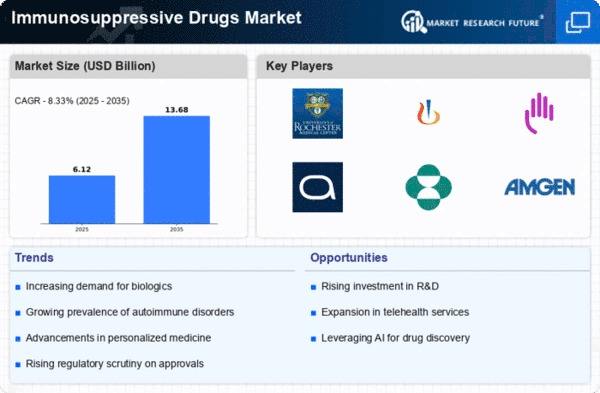
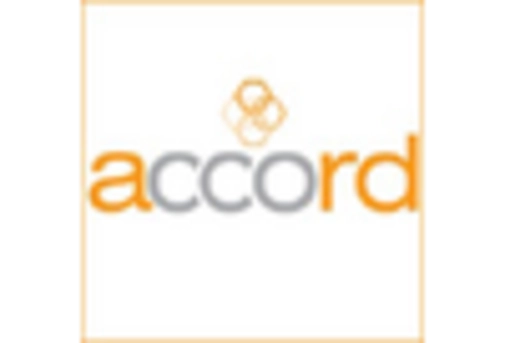
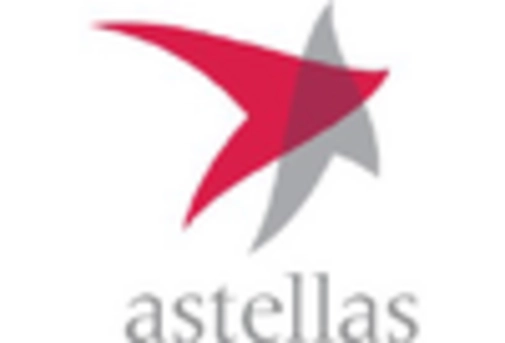
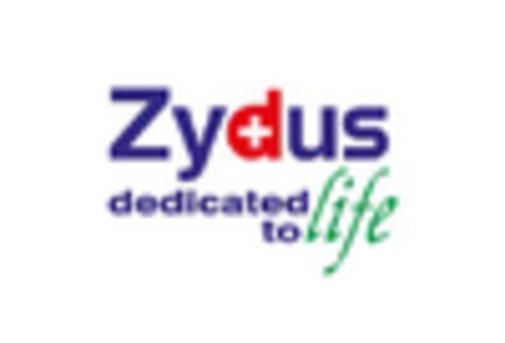
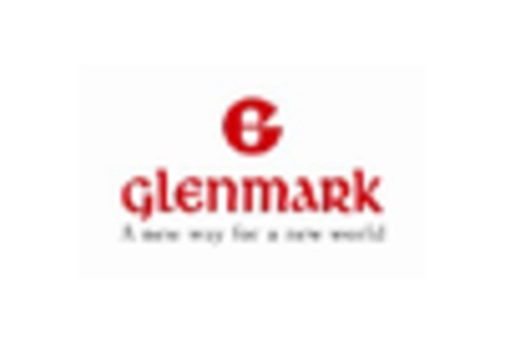
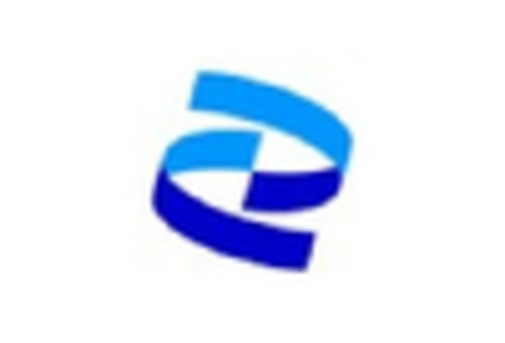

Leave a Comment